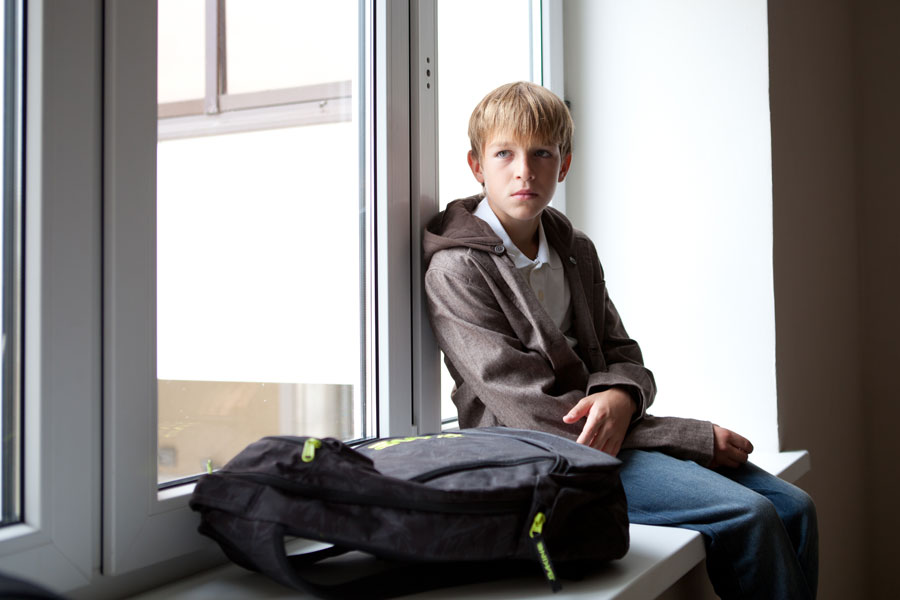
Dealing with challenging behaviour
Coaching & Training Programme for schools
How to Deal with Challenging Behaviour with Expert Training and Coaching
Truancy, disciplinary measures, safeguarding and staff retention are some of the issues associated with challenging behaviour in schools.
According to an Ofsted report, “pupils’ and students’ behaviour, such as low-level disruption in the classroom, absenteeism, intimidation or verbal abuse is often a negative influence on teachers’ wellbeing at work and will also impact on learning.”
Understanding the triggers behind challenging student behaviour and how to effectively address them enables teachers to deal with incidents with complete confidence.
The Back on Track Teens ‘How to Deal with Challenging Behaviour’ programme can support your teachers and the wider school community to achieve this.
‘Dealing with Challenging Behaviour’ Programme Outcome
By the end of the programme, participants will understand how to:
Identify the signs of unmet needs that manifest in challenging behaviour
Approach students (or parents and caregivers) with conviction to start a conversation
Feel confident intervening with the appropriate support
Preserve emotional wellbeing, self-worth, self-respect and self-value
Create better collaborative and supportive relationships with students


‘Dealing with Challenging Behaviour’ Programme Content
‘Dealing with Challenging Behaviour’ is a hands-on programme focusing on trauma-informed practice within education.
The content explores societal, cultural, religious, family and childhood development circumstances. These conditions and, often hidden, underlying issues may contribute to outwardly expressing negative behaviours in the school environment.
Challenging behaviours are usually outward symptoms of unmet needs. Programme participants will learn various interactive tools and techniques to support young people facing troubles at home, peer pressure, bullying or experiencing a self-identity crisis.

Who Is This Programme For?
This programme is for school communities experiencing challenging behaviour or wanting to understand more about identifying and resolving unmet needs among students. Coaching is available as one-to-one or group sessions for teachers and support staff. Student group sessions, resources, and outreach support for parents and carers are also available.
‘Dealing with Challenging Behaviour’ Programme Details
All Back on Track Teens programmes enhance your school’s existing curriculum schedule and can be tailored to meet the needs of your school’s current situation and goals. The content supports and empowers school communities to overcome challenges in the classroom and encourages safe collaboration between teachers, students, and parents.
How Can Your School Benefit from Working with Back on Track Teens?
Certified Back on Track Teens training specialists and coaches deliver inclusivity group training and one-on-one coaching for teachers and support workers. Working together to build resilience, confidence and self-worth creates an environment conducive to reducing challenging behaviours and improving emotional wellbeing. A highly engaged, inclusive school community improves staff retention, student attendance and overall performance.
Back on Track Teens offers parent support, student group sessions and practical online resources to enrich all training and coaching programme solutions.
Just wanted to write and say how much we enjoyed your presentation this morning. I have had so many staff come to me and say how informed they found it
A Cashmore, Walton School
Why Choose Back on Track Teens?
Back on Track Teens places young people, their parents and caregivers (including teachers and support workers) at the core of its work.
Innovative programmes use a combination of behavioural coaching, emotional support and practical resilience. We provide a creative and safe learning environment to explore honest conversation and encourage individual and group learning. Applying behavioural science to real-life scenarios empowers and supports individuals to discover and build on their natural strengths and talents.
Regulatory annual statutory medical training is also available, including:
- Safe Use of Medicines
- Anaphylaxis and EpiPen Medication
- Epilepsy Awareness
- Gastrostomy Training and Competency
All Back on Track Teens training meets OFSTED and Care Quality Commission standards. Participants will receive workbooks, email support and access to a huge range of practical, creative and empowering resources.
I have just received a fantastic report from Matthew’s science teacher.
I just wanted to thank you, it is since he has seen you that his attitude has matured and he has become an independent learner, who wants to succeed at school and do well in his subjects.
Thank you again.
Tom
